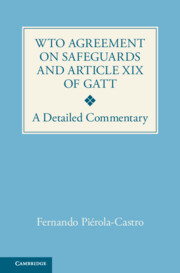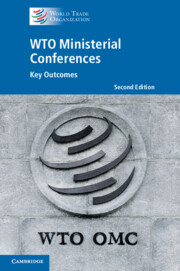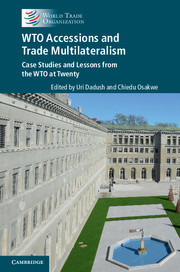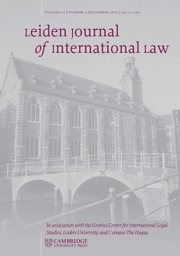Law and Politics on Export Restrictions
Delving into export restrictive measures this book links the key areas of WTO law, public international law, investment and competition law to expose how and why WTO rules on export dimension are insufficient due to export bias; how public international law helps to justify their adoption or maintenance; and how investment and competition laws contribute to their regulation. Built on works on accession protocols and national security exceptions, this book goes beyond international trade law and looks into international political economy, competition and investment law. It contributes to debates in conceptualising public and private forms of export restrictions, appreciating the complementary nature of trade and competition law in disciplining them; capturing the dynamic between trade and investment policies for their effectuation and circumvention; and bridging trade law and public international law to better understand their impositions for political and diplomatic purposes with the invocation of the national security justification.
- Offers a detailed analysis of WTO rules relating to export restrictions and the relationship between Accession Protocols and the WTO Agreement and relevant case-laws concerning export restrictions
- Examines export control measures against ZTE and Huawei and explores the disruption of the global supply chain due to export restrictions in the name of national security or in the time of pandemic
- Explores the 'self-judging' nature of national security exceptions and links export control under the COCOM/Wassenaar arrangement and GATT/WTO law
Reviews & endorsements
‘Amid rising populist protectionism and the Covid-19 pandemic, export restrictions have become an intensely debated topic in law and international relations. While export restrictions have been mostly assessed through the lens of the national security exception under the WTO regime, the legal issues go beyond the trade law dimension. … the book fills the gap in the existing literature by providing a comprehensive account of regulatory frameworks and case studies involving export restrictions.’ Pasha L. Hsieh, Asian Journal of International Law
‘The author applies a dualistic approach, conducting his analysis not only legally, but also, if not most importantly, politically, with particular emphasis on the international political economy. … The book’s importance and contribution are reinforced by the fact that disciplines with respect to export restrictions in the GATT/WTO are very limited, and in the scholarship the subject remains largely unexplored. Furthermore, the uniqueness of the adopted measure-specific approach (instead of a sector-specific one) makes the book an even more comprehensive, thought-provoking and fascinating read.’ Ewa Bujak, Polish Yearbook of International Law
‘One of the reasons that Chien-Huei’s book is so relevant is because many issues explored in the monograph lead a ‘real life’ outside of the book. His work seeks to fill the gap in the academic literature with respect to the treatment of export restrictions in international law, where the disciplines of the WTO take centre stage. Chien-Huei’s book, however, is not limited only to the analysis of the WTO rules, covering also adjacent fields of investment treaties, competition law, and export controls. The book moreover takes into account political economy considerations and is written from the perspective of global supply chains, which would be of value to legal practitioners and non-lawyer audiences alike.’ Vasyl Chornyi, Leiden Journal of International Law
‘Wu’s book fills a need in the academic literature. It is a comprehensive, detailed, well-researched, and penetrating account of export restrictions in world trade since the post-war era.’ Daniel C. K. Chow, Journal of International Economic Law
Product details
July 2021Adobe eBook Reader
9781108957205
0 pages
This ISBN is for an eBook version which is distributed on our behalf by a third party.
Table of Contents
- 1. Introduction
- 2. WTO rules on export restrictions
- 3. Governing export restrictions: national security and international political economy
- 4. Export restrictions in the global supply chain: investment and competition
- 5. Conclusion: reconfiguring global supply chain in the post-COVID-19 era
- Bibliography.









